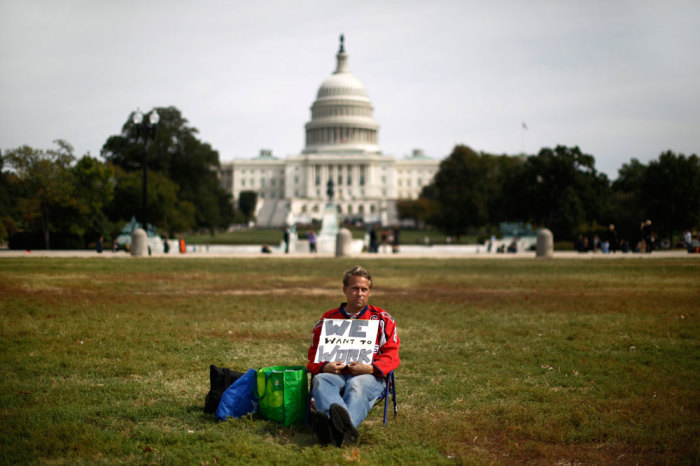Let's Stop Calling it a Government Shutdown

The more government "shutdowns" take place in recent years, the more people realize they're not really shutdowns. They're merely called that to make the other political party look bad. Urgent services aren't curtailed, and even non-urgent services and landmarks like public monuments are often kept open through creative ways.
This latest government shutdown – which should really be called a partial government slowdown – threatens to withhold funding for the low-income children's healthcare program CHIP. Republicans included its funding in a Continuing Resolution that would keep the government temporarily funded, as an incentive for Democrats to vote for the CR. Democrats complained that Republicans were using poor children as a pawn. But the reality is there was never any danger of the funding going away. Individual states can scramble and come up with temporary funding until a federal funding bill is passed.
Congress got into this current situation due to Democrats' feigned outrage over Trump allegedly calling countries like Haiti a profane word during a meeting with Democrats, where they insisted on including an expansive version of DACA in the forthcoming budget bill. However, Republicans in the room say Trump never used the term. Democrats seized on the opportunity, refusing to agree to a budget compromise unless Trump expanded DACA status to countries like Haiti. They wanted to make Trump look racist and Republicans look bad for a government shutdown. Trump refused to expand DACA, so Republicans were stuck at the last minute coming with a short-term funding CR that would last until February, when further negotiations could take place. Most Democrats refused to vote for the CR this past week, resulting in the so-called shutdown.
The last government shutdown took place in October 2013. Republicans could likely halt the shutdown immediately if the Senate changes the rules to only require 51 instead of 60 votes to clear procedural hurdles. Trump is urging this "nuclear option" change.
The reality of the shutdown is that only non-essential government employees will be furloughed, and they will still get paid later. Postal workers are still delivering mail and TSA screeners are still scanning travelers and their luggage at airports. Social Security checks are being sent out. Even many national monuments will remain open as state governments find ways to fund and staff them.
The economy is in great shape, so a postponement of payments to vendors and other hiccups caused by the shutdown should not affect it. Tad Dehaven, budget analyst for the CATO Institute, told CNN he doesn't anticipate any problems. "The last time we had a government shutdown, the stock market was fine," he said. "The economy was fine."
Yes, there are some negatives to the shutdowns, just nothing living up to the draconian words government shutdown. Shutdowns cost taxpayers over a billion dollars each time, in large part due to the salaries paid to federal workers told to stay at home.
Democrats are counting on the American people failing to understand the insignificance of the alleged shutdown. When it took place twice in 1995, Democrats successfully used it against Republicans after President Bill Clinton vetoed a CR. In 1996, Republicans lost seats in Congress and Clinton easily beat off Republican challenger Bob Dole to win reelection as president. House Speaker Newt Gingrich lost his popularity and ability to push through much of his agenda.
During the 2013 shutdown, the Obama administration put barricades in front of the WWII memorial on the National Mall to keep out military veterans and make Republicans look extra awful.
It's time to get rid of the phrase government shutdown. It's not accurate, and has been primarily used as a ploy by Democrats to make Republicans look bad.
"Republicans don't care about children," "Republicans don't care about the elderly;" whatever fits the Democrats' usual mantra they will throw out there. The complicit media also enjoys the phrase because it creates urgent sounding news. The phrase should be replaced by partial government slowdown. It's not flashy, but it represents the mere posturing going on in Congress better than that dire description.




























